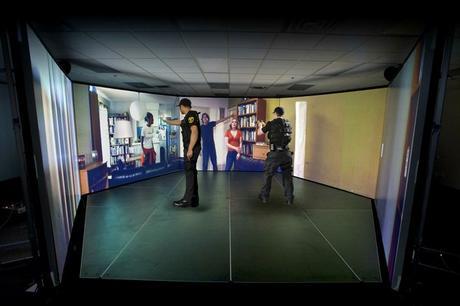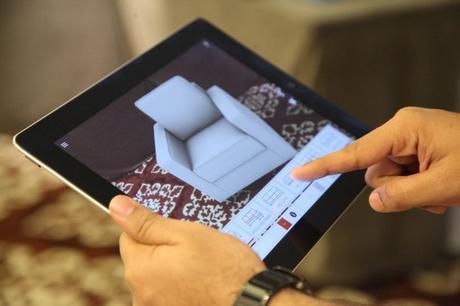Beyond the realm of entertainment, mainstream VR has almost unlimited potential across all aspects of industry. While most of the software capable of taking advantage of this new tech hardware is still limited to niche markets, we can expect to see virtual reality taking off in a big way very soon.
Military

The VR space may still be small, but it’s filled with passionate believers – certain tech enterprises are already taking advantage of the remarkable capabilities of VR for a myriad of unique projects. The military, for instance, already uses virtual reality programs for training and combat practice purposes, as do other government agencies like NASA. A big advantage in both situations is the fact that life-saving lessons can be learned from virtual mistakes which may not otherwise be repeatable in reality. (This VR application is also useful for firefighters, police officers, and other workers for whom hazardous scenarios are the norm).
Health
Health care is another industry at the forefront of virtual reality, utilizing the new technology for both educational and patient care purposes. Research professors at Stanford University have developed a surgical simulator that even allows for haptic feedback during training. Post traumatic stress disorder, an unfortunately common affliction, is another potentially promising use case. Similar to exposure therapy for other phobias, VR can help individuals learn how to cope with instances that may otherwise instigate destructive behaviors. This aspect of VR is also helpful for individuals with autism. Virtual reality games have also been used to help burn victims and those suffering from phantom limb pain, as well as individuals with brain damage or other neuropsychological problems.
New opportunities for the elderly and homebound also exist in the realm of VR, with virtual reality headsets acting as digital portals. For those restricted to a bed or single residence, virtual reality is a means of access to the outside world – a place all too easy to forget under constant confinement.
Sports

Among sports fans, players, and professionals alike there is a great deal of excitement over the arrival of technology that will actually allow fans to watch live sporting events in virtual “reality.” Those tuning into games from the comfort of their homes will soon be able to observe the excitement in a high tech, 360-degree view without leaving the couch. Eventually, the technology will likely encompass a variety of options for an improved fan “experience.”
Meanwhile, coaches and recruiters have looked at the training and teaching aspects of virtual reality, which will give players the chance to repeat the same real-game scenarios repeatedly.
Tourism
Here’s another fun use for virtual reality – tourism. No, people won’t stop physically jetting off to far-flung locales, instead they are expected to travel more if given a taste of virtual mountain vistas or digitized desert oases. Already put into practice by several companies in the hospitality business, Destination British Columbia allows visitors to experience a short hike or boat ride, while Marriott Hotels has initiated project #GetTeleported which takes newlyweds on a virtual honeymoon via Oculus headset.
Business

Similarly, professionals across all aspects of business are looking forward to a host of potential benefits in their respective industries. Virtual-based advertising and 360-degree product display, combined with haptic feedback, will allow marketing and advertising companies to insert their merchandise into idealized, virtual worlds for users to interact with. Virtual games and entertainment offer a variety of new ways to implement “product placement.” Real estate agents, and many companies in the home security, architecture, and interior design space, are also interested in the development of this new technology. Using virtual reality communication, many business leaders can look forward to test-driving new products as well as conducting virtual meetings.
Family Life
Family life, and other instances dependent upon interpersonal communication, may also see the benefits of a technology which “augments and enhances” emotional sensations. As within the sphere of business, families and friends can speak in virtual spaces and coordinate reunions, bringing them closer together. At the same time, however, experts have also warned that this type of technology may encourage inward tendencies and lead to depression and emotional alienation. Here it is still likely just a matter of time before the full impact and social power of VR can be accurately assessed.
Currently working through its awkward adolescence, virtual reality technology is finally on the road to maturity. With its unique ability to simulate genuinely complex scenarios, VR has the potential to change our perception of worlds both real and imagined.
About the author -:
Beth Kelly is a freelance writer and blogger. Born and raised in Michigan, she moved to Chicago to attend DePaul University where she graduated with a BA in Communications and Media. She lived in Krakow, Poland briefly before moving to South Korea to teach English. Follow her on Twitter

